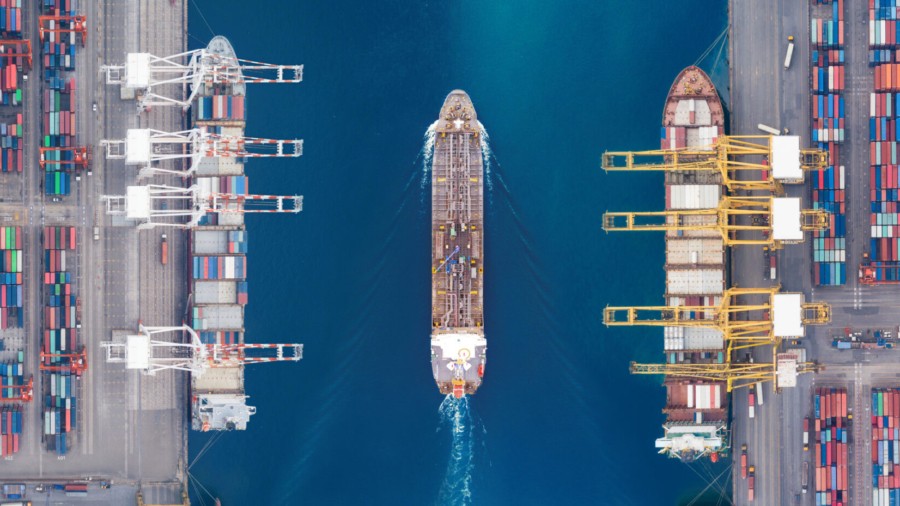Blog Detail
How Trade Finance Reduces Global Trade Payment Risks?

Taking risks is an avoidable part of running a business and the chances get doubled when it involves international trade & transactions. Foreign trade deals are more prone to develop associated overseas risks and the risks of non-payment & non-performance are the most common ones. The exporters are willing to get paid right away as soon as the deal is made while importers on the other hand always want to claim the goods before initiating the payment to the exporters.
These risks give threats to global traders to enter in any foreign trade deal with the unknown parties residing abroad with differences in rules, regulations & policies. Trading internationally comes with lots of risks and here, global trade finance services helps mitigate these risks for both the importers and exporters.
Why Is Trade Finance Needed In International Trade & Transactions?
Trade finance is a set of financial instruments and products that are being used by banks and various financial institutions to facilitate international trade. In simple words, it makes it easier for the importers and exporters to execute foreign trade deals by mitigating the challenges in international trade. It provides up-front finance to the global importers to purchase the orders from abroad and to assure the exporters that they would be paid on time. It also helps negotiate exchange rates and other risks with the supply chain and shipment.
In this blog, we are explaining how trade finance reduces trade risks in international transactions. Keep reading to know:
Ensure Sufficient Availability of Cash
Exporters often lack working capital due to waiting times of up to 90 days or sometimes up to 180 days between the claim of goods by the importers and receipt of payment. These payment delays diminish their liquidity as well as affect their capacity to complete an order on time or to pay even their suppliers. Trade finance resolves these short-term cash crunches by issuing exporter’s payments within days, instead of months.
Recommended Read: All You Need To Know About Trade Finance
For example, exporters can sell their receivables to the trade financier and get an upfront payment. The trade financier then further collects payments from the importer. It increases their liquidity, further leading to better cash flow and smooth operations in business. With suitable credit arrangements, they can take control of the working capital cycle, instead of waiting for payments to get verified.
Help In Overcome Foreign Trade Variables
Along with the elimination of payment risks, trade finance also helps global traders overcome other associated risks of overseas trade. It is none other than country and political risks. There are several risks such as non-tariff trade barriers, bank exchange regulations, or a ban on the sale of certain products in particular nations, etc. Sometimes the tension between two nations can also persist such as wars etc. Applying for global trade finance can help you mitigate these risks in international trade. Various banks like Axios Credit Bank Ltd. offer tailor-made trade finance solutions depending on the business needs.
Recommended Read: Why Is International Trade Finance A Popular Choice Among SMEs?
Secures Trade Deals By Guaranteeing The Payment
Importers want to initiate the payment after receiving the goods but exporters want to get payment before shipping the goods. So what is the solution? Trade finance bridges the gap by paying payment in advance. Trade finance instruments like a Letter of Credit, or a Bank Guarantee assure the sellers that they would be paid on time by the buyers. In case the buyer defaults in paying or performing the terms and conditions of the contract, the issuing bank will cover the loss. In simple words, a trade financing intermediary will bear the risks of collecting payment.
Recommended Read: How Different Types of Trade Finance Work as a Part of the International Trade?
Less Paperwork And Increased Opportunities
Creating a trade finance account is comparatively faster and easier than applying for a bank loan. Also, it simplifies the paperwork and other complex procedures. Collection, reporting, and bookkeeping will be executed for the clients. Additionally, global traders can enter into international trade deals without being scared of associated overseas risks, resulting in increased business opportunities.
Though international trading comes with lots of risks, trade finance helps reduce these risks by providing instant capital support and giving proof of creditworthiness. Access to effective global trade finance makes them a better choice than bank loans.
Recommended Read: What Makes Trade Finance A Better Choice Than Legacy Banks?







